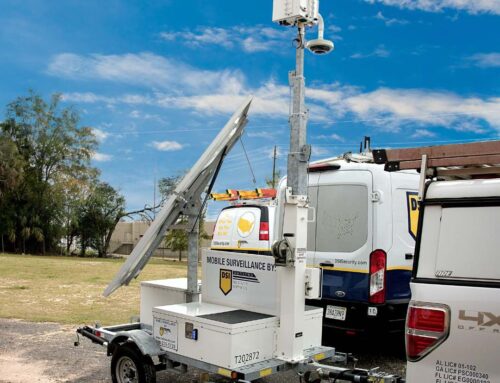
By: David Crow
Regional Sales Director, DSI Security Services
The old saying, “you get what you pay for,” is a phrase that could easily be applied to establishing a security program. Cost is definitely part of the decision, but it’s important to keep other factors in mind. Most importantly, the conception of cost should be balanced with quality and value, ideas that can be hard to quantify. We’ll take a look at some elements that add to the value of a security service.
Understand the Requirements
Before discussing cost, it is necessary to get a better understanding of what the requirements are and what a security service can do to satisfy those requirements. An organization must look at what it needs to protect, what risks it needs to guard against, and how security figures into the image it wants to present. Further analysis may show how the team can create additional value in the process.
Focusing solely on cost may miss the distinct needs inherent to a particular business. Healthcare facilities, for instance, have much different security requirements than a manufacturing facility. The expectations of a security officer dealing with a patient versus interacting with an employee must be considered. When it comes to security, one size does not fit all.
The Return on Investment of Security Service
It is important to look at security service as part of the value chain. The return on investment of quality security and risk management comes primarily through the value of readiness. Organizations are faced with an ever-evolving range of threats and risks that can cause damage in a multitude of ways. Man-made or natural occurrences can have catastrophic effects on assets, personnel, and even the brand. Repercussions of an event include revenue loss, breakdown of supply chains, and damage to a company’s reputation and market credibility.
A company without a risk management plan and effective security team in place runs the risk of being completely unprepared for such an event. The same is true to an extent when an organization opts to maintain the minimum level of security. Hiring guards for the doors may be viewed as sufficient to guard against intrusion and manage everyday threats. But this approach may ignore the value that a professional security service can provide: a more holistic evaluation of risks, vulnerabilities, and opportunities.
The Role of a Corporate Security Officer
Most larger organizations understand this need and often employ a Chief Security Officer (CSO) who is both a security professional and a business leader. A CSO must be capable of building a team of experienced people who can align the safety and security mission with the operational demands of the business. The goal of a CSO is to provide a secure environment while delivering efficiency gains and operational savings that create value to the organization.
Not every organization has the budget to employ an effective and dedicated in-house security team, though, and that’s where a private security service can make a lot of sense. Engaging a professional security service allows the organization to focus on what it does best, while protection is provided by those who specialize in it. By building a relationship with a provider, a company can take advantage of the expertise that a professional service has to offer. They won’t, however, need to get involved with the recruiting, training, certification, and regulatory aspects of building a security team.
Cost Is About More Than an Hourly Wage
The cost of security personnel cannot be measured by hourly wage alone. There are a number of factors that must be considered when determining the cost of creating a quality security plan.
- Training is critical for security personnel. A guard must have the knowledge to anticipate and react to events, while at the same time maintaining composure under stress. A poorly trained guard can actually become a liability if actions are too extreme for the situation.
- Experience is another significant factor. Some of the best officers are often former law enforcement or military personnel who have lots of experience to bring to the position.
- Coverage requirements can be problematic, too. The need for security around the clock may be at odds with the typical operating hours of an organization. Coverage for time off and other absences complicates things further.
- Security personnel must be properly outfitted and equipped. Security officers should have identifiable uniforms and the necessary equipment to perform their jobs and to make a good impression.
It becomes obvious that good security cannot be achieved by simply hiring a guard for an hourly wage. A thorough plan is needed and a cohesive team is needed to carry it out. While establishing a good team or partnering with a professional service may seem more costly at first glance, the value soon becomes apparent. The quality of service should be considered right along with the cost.
More Value to be Gained
A well-designed program may add additional value, as well. As we discussed last month in Utilize the Security Team to Provide a Value-Added Impact, there are a number of areas where the security team can provide additional value beyond just protection. A good example is the corporate image that security personnel can convey. An officer is often the first person that a customer, employee, or potential hire encounters when entering the building. Is that really an area where you want to present a cost-cutting image?
A professional security service will also have the benefit of experience with the latest security technologies that can add additional value. Camera systems and monitoring technologies can supply an organization with occupancy or customer traffic data that is helpful in making business decisions. Automated devices can improve the customer experience while also improving situational awareness.
Consider Value Along With Cost
It becomes clear that an hourly wage may only be part of the picture when considering the cost of a security program. Whether choosing to staff your own team or partnering with a professional security service, there are many more details to consider beyond price. Cost is certainly a consideration, but allowing it to be the driving factor may not provide the best value when it comes to protecting your organization’s assets, employees, and reputation.






